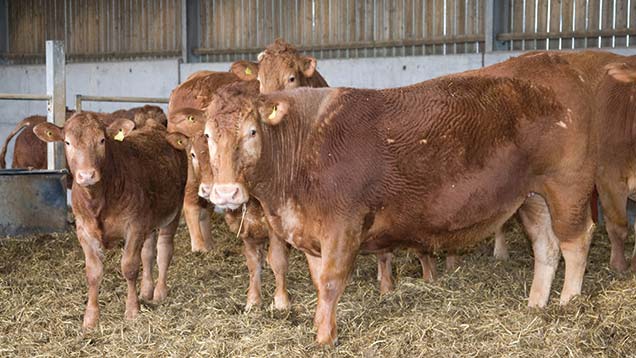Ask the Vet: What causes hair loss in cattle

Ask the Vet is a series, whereby readers submit questions to Westpoint vets about problems they are experiencing on their farms.
In this edition one worried reader asks what could be causing hair loss in his cattle.
Q My cows have been losing hair and so have the seven-month-old calves.
They are losing hair on their heads and near their tails. I hope you could tell me what’s wrong with them.
A The most likely cause of hair loss in these regions is external parasites such as lice or mites (mange).
They are spread by direct contact between animals. Disease is most common during winter housing, but can also be seen when animals are at grass.
See also: Winter housing: How to deal with lice in cattle
Heavy infestations cause animals to bite themselves or scratch against feed barriers and fences to relieve the irritation with resulting hair loss: typically over the neck, shoulders and rump (lice) or neck, tail head and limbs (mange).
Production losses can result from reduced feed intake and damaged hides.
There are five species of louse which infest cattle, classified as either biting or sucking.
Careful examination of the skin may reveal adult lice or their eggs. Diseased or nutritionally stressed animals will develop more severe infestations.
See also: 4 tips to fight parasites in housed cattle this winter
Chorioptic mange is common in the UK, while sarcoptic and psoroptic mange are rare. In addition to irritation, mange causes oozing of serum and thickening of the skin. Diagnosis is confirmed by skin scrapings.
I would advise that your vet examine the affected animals to rule out other possible causes of the hair loss, such as ringworm, and advise on treatment and any potential zoonotic risk.
A range of treatments are available for external parasites with differing application methods and duration of action. Ideally all in contact animals should be treated at the same time.
Quarantine and treatment of bought in animals will further limit the introduction of skin diseases to your herd.
Julie Elkins is an associate vet at Westpoint Veterinary Group
Advice given is based on the information provided and cannot necessarily apply to situations where other factors exist.
If the advice required relates to a specific animal or disease problem the reader should contact their own vet or adviser with appropriate knowledge of the particular circumstances.
